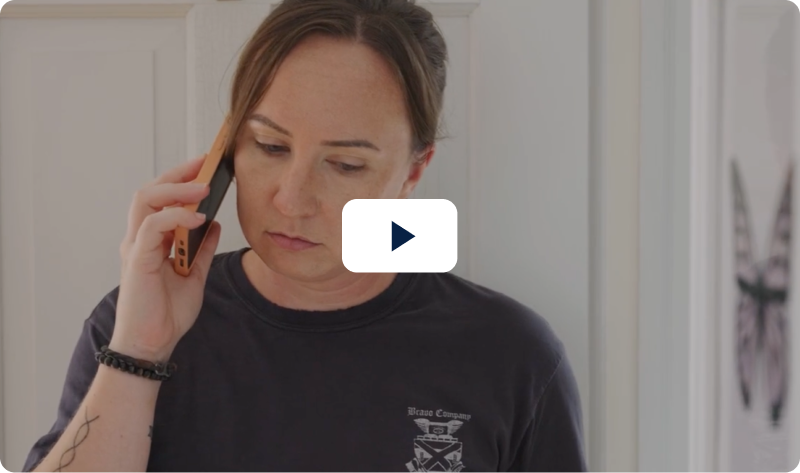Need immediate help? Dial 9-8-8 and press 1 for the Veterans Crisis Line
Supporting a Veteran who’s suicidal
Someone you care about has told you they’re thinking about suicide. Take a deep breath.
You can be a big help.
Here’s an example:
A Veteran friend sometimes calls you late at night when she’s been drinking. She talks about suicide, but by the end of the call she feels better. The next day she usually says it was just the booze and she’s fine.

Watch what happens next
When someone says they’re suicidal, while it may not be an immediate emergency, it is something that should not be ignored. We use the example above to give tips on helping your loved one in the moment, over time, and in an emergency.
988 has the advantage of being staffed by people trained in behavioral health emergencies. Depending on where the Veteran is, mobile crisis units can be dispatched to the scene or meet your loved one at a clinic. Getting familiar with the local 988 resources before a crisis hits can be useful.
911 has the speediest response time. It typically results in armed officers arriving. While many officers or specially-trained responders are skilled in these types of situations, some are not. When police response operates at its best, the person in crisis is protected and connected to useful care. At its worst a bad situation can escalate and end with the police shooting the person in crisis—a tragedy for all involved.
Arrival of police can have different effects on different people. When facing an emergency, if your Veteran is able to communicate, ask them how they feel about having police arrive and let their answer in part inform your next step.
Consider calling 988, not 911:
Consider 911:
Be specific with the 911 dispatcher and responders about weapons and level of threat.
For example:
Tell the 911 dispatcher and responders about any behaviors or conditions they should be aware of:
Check in with yourself
Helping others often takes more than one person. If you’re starting to feel overwhelmed or that you might not be the right person to provide support, it may be time to ask other friends or relatives to get involved. Or it might be more important to get your Veteran connected with a professional. Don’t forget to support yourself. This is tough stuff to deal with.
